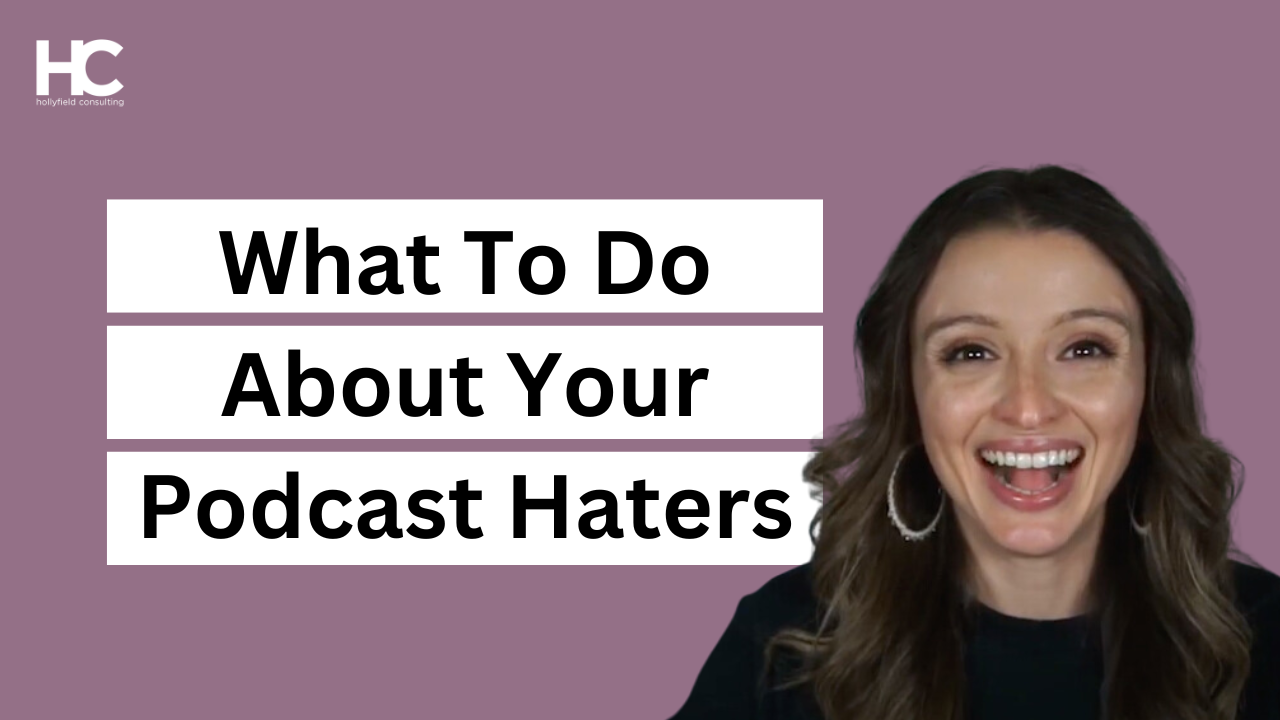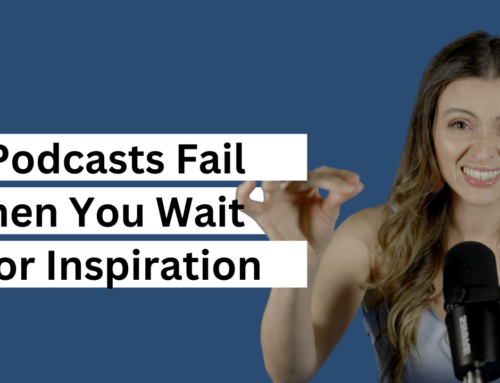Picture this: You, the podcasting superstar, armed with a shield of resilience and a megaphone of positivity, waltzing through the vast landscape of social media. As you journey through the digital realm, you spot them—the trolls, lurking in the shadows, ready to pounce with their snarky comments and negativity. But fear not, for you possess the ultimate superpower: the ability to scroll past their antics, to block and banish their presence, and instead, to channel your energy towards your true tribe—the amazing listeners who are eagerly waiting to discover your podcast treasure.
So, fellow podcaster, put on your virtual armor, don your brightest smile, and let’s dive headfirst into the wonderful world of social media promotion, where trolls are mere speed bumps on the road to reaching your ideal audience.
When it comes to dealing with these keyboard warriors, being liberal with the “block and delete” button can be a helpful strategy. Let me share why:
Protect your mental well-being:
Trolls thrive on negativity and aim to provoke reactions. Engaging with them often leads to frustration, stress, and even a blow to your self-esteem. By swiftly blocking and deleting their comments, you safeguard your mental well-being and create a positive online environment.
Maintain a safe space for your community:
Your podcast’s online presence should be a welcoming and inclusive space for your listeners. By promptly removing trolls, you show that you won’t tolerate hate speech, harassment, or disrespectful behavior. This helps foster a supportive community where everyone feels comfortable engaging and sharing their thoughts.
Focus on constructive engagement:
Engaging with trolls rarely leads to productive conversations. Instead of wasting your energy on individuals who are set on spreading negativity, channel your efforts towards those who genuinely appreciate your content. By filtering out the noise, you can prioritize meaningful interactions with your true audience.
Protect your brand image:
Trolls often seek attention and may attempt to damage your reputation by spreading false information or toxic sentiments. By blocking and deleting their comments, you prevent their harmful messages from gaining traction and protect the integrity of your brand.
Time management:
Engaging with trolls can be a significant time sink. As a podcaster, your time is valuable, and you want to allocate it wisely. By swiftly eliminating trolls, you free up your time to focus on content creation, engaging with your genuine audience, and nurturing your podcast’s growth.
Remember, blocking and deleting trolls doesn’t mean you’re ignoring constructive criticism or differing opinions. It’s about recognizing the difference between genuine discourse and malicious intent. Embrace healthy discussions and respectful disagreements, but don’t hesitate to eliminate those who have no interest in meaningful engagement.
Ultimately, by being liberal with the “block and delete” approach, you prioritize your mental well-being, cultivate a positive community, protect your brand, and manage your time effectively. So, keep those trolls at bay and continue creating the fantastic content your listeners love!
While it may be tempting to engage with them and try to win them over as listeners, the reality is that trolls are unlikely to be your ideal podcast audience. Here’s why:
Misaligned interests:
Trolls often target individuals or groups they disagree with or find controversial. If they are trolling your podcast, it’s likely because they have opposing views or simply enjoy causing disruptions. Their intentions are not aligned with the purpose and content of your podcast, making it unlikely that they would genuinely appreciate or engage with your episodes.
Negative engagement:
Trolls are notorious for spreading negativity and seeking attention through inflammatory comments. Engaging with them typically results in unproductive and draining interactions. It’s important to focus your energy on those who are genuinely interested in your content and contribute positively to the podcast community.
Lack of genuine engagement:
Trolls often have little interest in meaningful engagement or fostering constructive conversations. Their comments are typically designed to provoke reactions rather than contribute to thoughtful discussions. Your podcast thrives on genuine listeners who actively participate and engage in meaningful ways, and trolls seldom fit that description.
Risk to your community:
Engaging with trolls can create a hostile environment for your genuine listeners. Trolls often disrupt discussions, spread misinformation, and intimidate others. By giving them attention, you inadvertently give them a platform to perpetuate negativity, potentially alienating your loyal listeners.
Limited impact:
Converting a troll into a dedicated listener is an uphill battle. Their initial intention is often to create chaos, and attempting to win them over is unlikely to yield positive results. Your time and energy are better spent on cultivating relationships with your existing audience and attracting like-minded individuals who genuinely appreciate your podcast.
Remember, it’s important to focus on your target audience—the individuals who resonate with your content, share your values, and actively engage with your podcast. By nurturing these relationships and creating a positive community, you’ll attract the right listeners who will support and uplift your podcast.
So, don’t let trolls distract you from your mission. Stay true to your content, engage with your genuine audience, and continue delivering valuable content that resonates with your ideal listeners. They are the ones who truly matter in your podcasting journey.




























